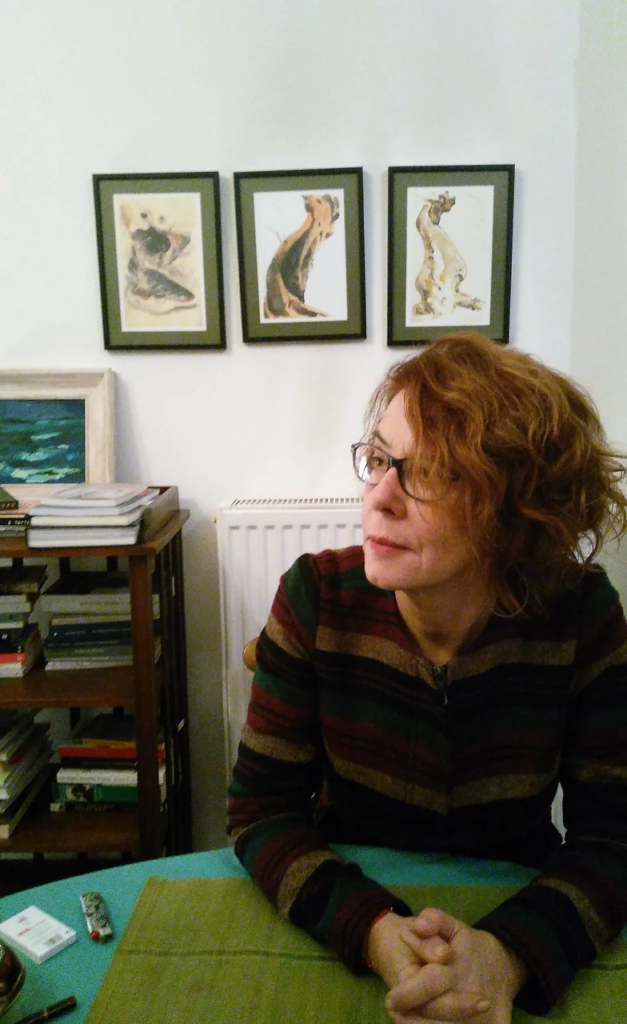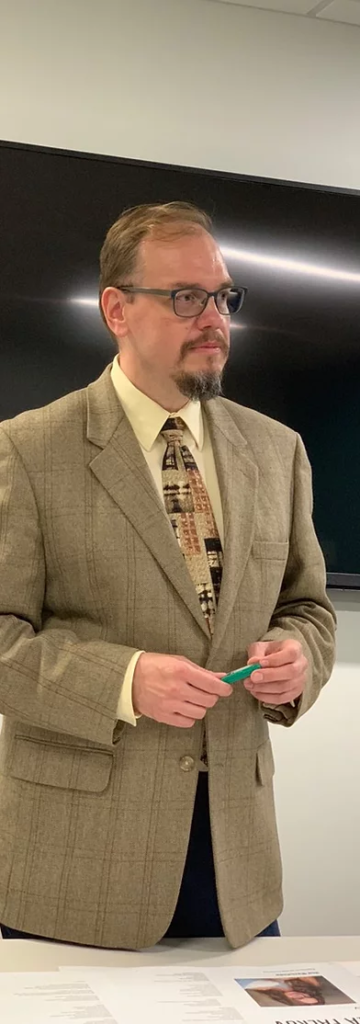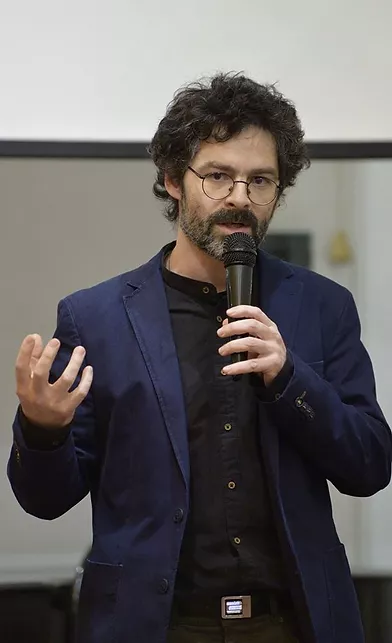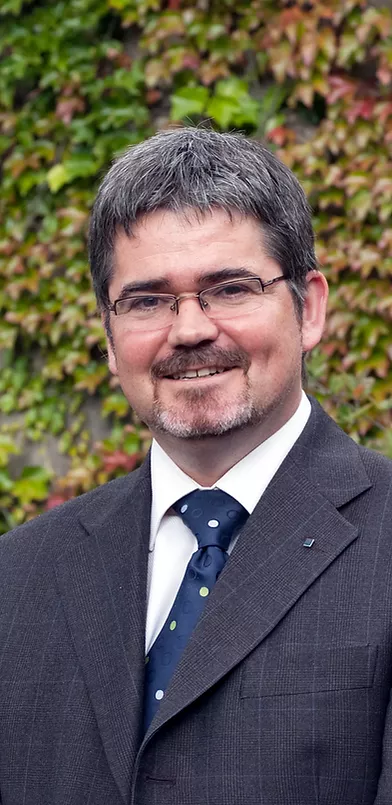1st PoSoCoMeS – MSA Working Group conference (21 September – 1 October 2020)
Plenary Events
Monday, 21 September
● Opening session
● Lecture by Meltem Ahıska: Reflecting on the imperial complex: thinking through memory knots beyond national histories
● The Soviet Garden, screening & discussion: director Dragoş Turea in conversation with Oksana Sarkisova
Tuesday, 22 September
● Lecture by Kulshat Medeuova: The post-Soviet memoryscape in Kazakhstan
● Memory, Fiction, Non-Fiction. Katja Petrowskaja & Maria Stepanova in conversation with Ksenia Robbe (University of Groningen)
Wednesday, 23 September
● Lecture by Vitaly Chernetsky: Multidirectional memory as challenge and promise in post-Soviet contexts: theoretical reflections and the paradoxical promise of Odessa as a case study
Thursday, 24 September
● Book talk: Nikolay Epplée (Moscow), author of The Uncomfortable Past (2020), in conversation with maria Lipman (PONARS Eurasia, Moscow). Chair: Mischa Gabowitsch (Einstein Forum, Potsdam). (In English)
● Artiom Zavadovsky reads a fragment from Requiem for Europe, by Nora Dorogan, Nicoleta Esinencu, Kira Semionov, Doriana Talmazan and Artiom Zavadovsky
Monday, 28 September
● Lecture by Heidi Grunebaum: Between postcolonial memory politics and imaginaries of partition: the question of Israel/Palestine
Tuesday, 29 September
● Chto Delat. Presentation of the Post-Soviet Studies project by the School of Engaged Art
Thursday, 1 October
● Lecture by Stefan Berger: The memory of communism in Eastern Europe – antagonistic, cosmopolitan or agonistic?

Meltem Ahıska
Meltem Ahıska is Professor of Sociology at Boğaziçi University, Istanbul. She has written and edited a number of books, including Occidentalism in Turkey: Questions of Modernity and National Identity in Turkish Radio Broadcasting. Her articles and essays on Occidentalism, social memory, monuments, political subjectivity, gender and feminism have appeared in various journals and edited volumes. She is a member of the editorial board of the e-journal Red Thread and of the editorial advisory board of the e-journal Critical Times.
Reflecting on the imperial complex: thinking through memory knots beyond national histories
21 September. 11:30 – 13:00.
In this lecture, I attempt to do a symptomatic reading of some current — and recurring — issues in Turkish politics in order to point to multiple temporalities and memory knots both within and beyond the national frame. By extending the scope of my previous analysis of Occidentalism in Turkey, I argue that imperiality and colonialism have ongoing effects on how the present time is experienced, producing structures of feeling that are mute yet trapping. I offer the concept of the ‘imperial complex’ to address the complexity of the issues at hand as well the operating psycho-social complexes of hegemonic national subjects. I hope that working through the imperial complex opens up new paths of remembering for a renewed political imagination.
Kulshat Medeuova
Kulshat Medeuova is Professor of Philosophy at the L.N. Gumilyov Eurasian National University in Nur Sultan. Her work develops interdisciplinary approaches to the philosophy of culture, urban anthropology and memory practices in Kazakhstan. Her recent research engages with the epistemological dimension of nationalising practices such as: the creation of a new capital for Kazakhstan; the secret life of monuments, and decolonisation and knowledge production in post-Soviet Kazakhstan. Her major research projects include:
● Anthropology of morality: discourses and everyday practices in modern Kazakhstan” (2012-2014)***
● How authoritative spaces are formed: a comparative analysis of industrial and postindustrial cities (2013-2015)*
● Current practices of memory: conceptualising the past and constructing identity in the contemporary culture of Kazakhstan (2015-2017)***
● Memory places in Kazakhstan (2017)**
● ‘Places of memory’ in the modern culture of Kazakhstan: commemoration in public spaces (2018-2020)***
● Cultural diversity and new memory places in Kazakhstan (2020)**
● Current practices of memory: conceptualising the past and constructing identity in the contemporary culture of Kazakhstan (2015-2017)***
* funded by the Open Society Institute, Hungary; ** supported by the French Central Asian Studies Institute (IFEAC); ***financed by the Ministry of Education and Science of the Republic of Kazakhstan
22 September. 09:45 – 11:15.
The logic of a transforming commemorative landscape, in a newly independent state striving for self-determination, involves at least two major trends. On the one hand, there is the ideological replacement and displacement of Soviet monuments with new ones, initiated by the state itself. Using the case of the memorialisation of Ablai Khan, I will consider how this displacement and replacement took place in different cities of Kazakhstan. How difficult was the search for an unambiguous solution and what is the current fate of Soviet monuments in Kazakhstan? How has the foregrounding of the traumatic memory of the Gulag and other aspects of colonisation through modernisation changed the idea of the Soviet? On the other hand, we witness the emergence of new regional, family, religious, and clan memory actors, producing spaces where emotional heroes of cultural memory dominate to a greater extent. Another feature of the commemorative landscape in the nationalising state is the use of an emotional register in the monuments of batyrs, biys, mythical characters and undeservedly forgotten heroes of the recent past. But this register is used in spaces outside cities or large settlements. Overall, the memorial landscape of Kazakhstan mixes urbanised and routine memory practices. Practices of constructing mazars and historical steppe landmarks (balbals) have come to penetrate cities, and equestrian monuments are being installed along the highways, thereby creating a bizarre hybrid of the Soviet, post-Soviet and imaginary pre-Soviet. The lecture was prepared on the basis of field research conducted since 2015, as well as thanks to joint work with Ulbolsyn Sandybaeva and Dametken Tolgambaeva.


Vitaly Chernetsky
Vitaly Chernetsky is Associate Professor of Slavic Languages and Literatures at the University of Kansas; he has recently completed a 5-year term as the Director of the university’s Center for Russian, East European, and Eurasian Studies. A native of Odessa, Ukraine, Professor Chernetsky completed his Ph.D. in Comparative Literature and Literary Theory at the University of Pennsylvania. Prior to coming to the University of Kansas in 2013, he taught at Columbia University and at Miami University in Ohio. He is a past president of the American Association for Ukrainian Studies (2009-2018) and the current Vice President and Scholarly Secretary of the Shevchenko Scientific Society in the US. His research interests include Russian and Ukrainian literature and culture (film, theatre, visual arts); intellectual history of Russia and Ukraine; cultural aspects of globalisation; modernist and postmodernist writing worldwide; postcolonial theory and postcolonial writing; identity and community; diasporic cultures; nationalism and ethnicity; literary and cultural theory; film and film theory; feminist theory; gender studies; LGBT studies; and language pedagogy. Among his major publications is the monograph Mapping Postcommunist Cultures: Russia and Ukraine in the Context of Globalization (Montreal: McGill — Queen’s University Press, 2007; revised Ukrainian edition, Krytyka, 2013), the bilingual anthology of contemporary poetry Letters from Ukraine/Lysty z Ukraïny (co-edited with Hryhory Semenchuk and Yuri Izdryk; Ternopil’: Krok, 2016), and numerous articles on Ukrainian, Russian and Ukrainian-Russian writing and film. His Ukrainian-language book, Intersections and Breakthroughs: Ukrainian Literature and Cinema between the Global and the Local, is forthcoming shortly from Krytyka. He has also published numerous literary translations from Ukrainian and Russian into English, including two novels by Yuri Andrukhovych.
23 September. 16:30 – 18:00.
Recent decades have been marked by many intense, painful discussions on memory-related topics in Eastern Europe and Eurasia. Indeed, not only were these memories contested, but also, as the title of a seminal collaborative project of scholars across several European universities (led by Alexander Etkind at Cambridge from 2010 onward) suggests, we witnessed ‘memory at war’. In this talk, I hope to outline a possible change of paradigm, focusing on the theoretical model offered by Michael Rothberg in his influential 2009 book Multidirectional Memory: Remembering the Holocaust in the Age of Decolonization. I believe this book and the theoretical model it proposes is yet to make the impact it deserves in the study of memory politics and practices in our region. I will consider some of the key lessons we could draw from Rothberg’s book and from the later modification of this model in his more recent monograph, The Implicated Subject: Beyond Victims and Perpetrators (2019). I conclude by considering Odessa, the city where I was born, as a promising case study for exploring and testing the productivity of Rothberg’s model in the post-Soviet/East European context.
Nikolay Epplée
Nikolay Epplée is an independent researcher working on international memorial culture and on the memory of Soviet state terror. He has published extensively on memory issues in Vedomosti, InLiberty, Colta and other Russian media. He graduated from the Russian State University for the Humanities (Moscow), where he studied classical philology and philosophy. He has lectured on ancient Greek philosophy, classical and medieval literature and has published translations from Greek, Latin, English, German and Italian. Between 2013 and 2017 he was a staff writer for the daily newspaper Vedomosti. In 2017—2018 he held fellowships at the Heinrich Böll Foundation (Moscow), the Institute of Human Sciences (Vienna) and the German Historical Institute (Moscow).
Book talk: Nikolay Epplée (Moscow), author of The Uncomfortable Past (NLO, 2020), in conversation with Maria Lipman (PONARS Eurasia, Moscow)
Chair: Mischa Gabowitsch, Einstein Forum, Potsdam
24 September. 13:30 – 14:30.
Soviet state terror and the Soviet totalitarian past in general have not been properly assessed in Russia. This fact prevents the country from parting with this legacy and moving freely into the future. In recent decades, numerous countries have found their way from dictatorship to democracy and made great efforts to work through their traumatic past. This experience is almost totally unknown in Russia. Nikolay Epplée attempts to identify some fundamental international models of dealing with a difficult past (using the examples of Argentina, Spain, South Africa, Germany, Poland and Japan) and to apply them to present-day Russia.


Heidi Grunebaum
Heidi Grunebaum is acting director at the Centre for Humanities Research, University of Western Cape, where she leads the research platform on Aesthetics and Politics and convenes the Factory of the Arts. Grunebaum’s work examines aesthetics in response to the afterlives of genocide and mass violence and on the Holocaust, apartheid and the Palestine Nakba, in particular. Her research interests include critical memory studies, genocide studies, aesthetics and politics, and postcolonial theory. She is the author of Memorialising the Past: Everyday Life in South Africa after the Truth and Reconciliation Commission, co-editor of Uncontained: Opening the Community Arts Project Archive and of the award-winning exhibition book Athlone in Mind. With Mark J. Kaplan she made the award-winning documentary film The Village Under the Forest. She is currently working on a book manuscript on nonpartitioned aesthetics and on a new film on racism and Jewish memory politics in contemporary Germany.
Between postcolonial memory politics and imaginaries of partition: The question of Israel/Palestine
Discussants: Tomer Gardi (writer, Berlin) and Magda Qandil (LL.M. International Human Rights and Humanitarian Law, Viadrina European University, Frankfurt (Oder))
28 September. 10:00 – 11:30.
If modern Zionism grew out of and in response to the failure of ‘assimilation’ and Jewish belonging in Europe, it assumed its full political force in the establishment of the Jewish state at the end of WWII with far-reaching consequences. To read the making of a Jewish ethnonational state in historic Palestine is to trace the convergence of the epistemological inheritance of Europe’s racialised, gendered concept of ‘the human’, the shadow of the Shoah, the twilight of Europe’s colonial and settler colonial enterprises across the planet, and support for a partitionist paradigm by the political superpowers reconfigured in the post-WWII geopolitics of the ‘Cold War’. In my lecture, I outline an itinerary of this convergence in Israel/Palestine in order to address the implications of ‘partitionist’ thought within a longer historical arc and epistemological trajectory of race-thinking. I argue that the convergence of the historical, epistemological and political inheritances that I trace in relation to Israel/Palestine is of significance beyond its geopolitical territory. The historical convergence is tied to the current global conjuncture in which the rise of white ethnonationalist right-wing populisms across the world is witness to the return of the ‘minority’ as ‘existential threat’ reprised through the figure of ‘refugees’, Blacks, (non-Zionist) Jews, Arabs, Muslims and gender non-binary people. Following a number of anticolonial thinkers and postcolonial theorists, I sketch the contours of disavowed non-essentialist emancipatory itineraries to think of the question of Israel/Palestine as a questioning of partition/separation/exclusion for the contemporary moment more broadly. Finally, I propose that through a ‘postcolonial aesthetic education’, non-national/anti-nationalist modes of ‘mnemonic solidarity’ might offer a method to reconfigure partition and the race-thinking by which partition is underpinned.
Stefan Berger
Stefan Berger is Full Professor of Social History and Director of the Institute for Social Movements at the Ruhr University in Bochum, Germany. He is also executive chair of the History of the Ruhr Foundation, and an Honorary Professor at Cardiff University in the UK. He has published widely on the history of social movements, the history of historiography, the history and memory of deindustrialisation and industrial heritage, the history of nationalism and national identity. Among his most recent publications are A Cultural History of Memory (with Jeffrey K. Olick, 6 vols, Bloomsbury 2020), Constructing Industrial Pasts (Berghahn Books 2019), Writing the History of Nationalism (with Eric Storm, Bloomsbury 2019), and his most recent monograph is The Past as History: National Identity and Historical Consciousness in Modern Europe (Palgrave MacMillan 2015).
1 October. 10:00 – 11:30.
The lecture will review different and sometimes strongly contrasting developments in the memory of communism across different East European post-communist states. It will ask what post-communist states have been nostalgic for when remembering communism and what is being criticised. Which political forces have been functionalising the memory of communism in which way? The lecture will argue that antagonistic forms of memory have been dominant in the memoryscape of communism across East Central and Eastern Europe. They have combined in various ways and to different degrees with cosmopolitan memory regimes, favoured by the official memory politics of the European Union. Using theories of agonistic memory developed by Anna Cento Bull and Hans Lauge Hansen in their 2016 article in Memory Studies, the lecture will ask what potential there is for agonistic memory frames of communism in East Central and Eastern Europe and what advantages those agonistic frames would have over the dominant antagonistic and cosmopolitan ones.
